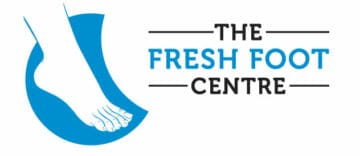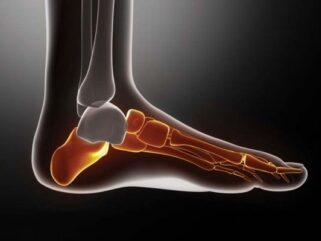Heel pain and/or arch pain that occurs in the morning and after a long rest is the general representation of the foot condition labelled as Plantar Fasciitis, sometimes called as Heel Spur Syndrome. It is integral to treat heel pain at the earliest than simply letting it “run its course.” People usually alter their gait to avoid heel pain and thus are susceptible to more injuries. Early intervention should equate to quicker recovery.
Are you constantly suffering from arch or heel pain? Does it hurt excruciatingly upon your first step in the morning? Is your foot pain getting worse? At The Fresh Foot Centre, we treat arch and heel pain on a daily basis.
It is crucial to get an accurate diagnosis of your pain as it may be one of these:
- Weakness in the plantar fascia
- Nerve impingement
- Bursitis
- Heel spur fracture
- Fat pad inflammation
- Muscle/tendon overuse
The most common cause of arch pain is plantar fasciitis. Plantar fasciitis is the Latin word for inflammation of the plantar fascia – the fibrous band of tissue that connects the heel bone to the toes. Someone with arch pain usually has inflammation of the tissues within the mid-foot. The arch of the foot is formed by the plantar fascia, which tightens and relaxes during the different phases of gait. The plantar fascia plays an important role in proper foot mechanics and the transfer of weight from the heel to the toes. When inflamed, even simple movements can be quite painful.
Plantar fasciitis is caused by over-stretching of the plantar fascia. Repeated strain can cause tiny tears in the ligaments. These can lead to inflammation, irritation, pain, and swelling.
Arch pain is more likely to happen when:
- Your feet roll inward too much (over-pronation)
- You walk, stand, or run for long periods of time, especially on hard surfaces
- You have tight Achilles tendons and/or calf muscles
- You are overweight and/or gaining weight too fast
- You use flip flop shoes or non-lace up footwear often
- You have tight gasctrocnemius / soleus muscles
- You wear high heels often
- You change training shoes often
- You have decreased flexibility due to normal aging process
- You are 30-60 years of age
Treatments
An accurate and early diagnosis from a podiatrist is important in the management of arch pain. Consideration needs to be given to the cause, and strategies should be put in place to prevent it from happening again. Advice should be sought on the adequacy of footwear. Stretching exercises should be done even long after the symptoms are gone. A proper gait assessment should be carried out. Foot orthoses should be used if structural imbalances are present. Activity levels and types of activities, including occupation and sports, need to be considered and modified accordingly.
Our treatment will focus on the root cause of your heel/arch pain, which may include (but not limited to) the repetitious straining of your foot with every step you take. We will perform an extensive biochemical assessment to accurately diagnose your problem, and implement a management plan that will relieve your pain and get you back doing your normal activities .
We utilise various intervention measures for each patient. These include orthotics, inter-X (nerve desensitisation), trigger balls, dry needling, straps, plantar fascia socks, and footwear. We can refer for X-ray, MRI, and ultrasound if additional diagnostics are required.


